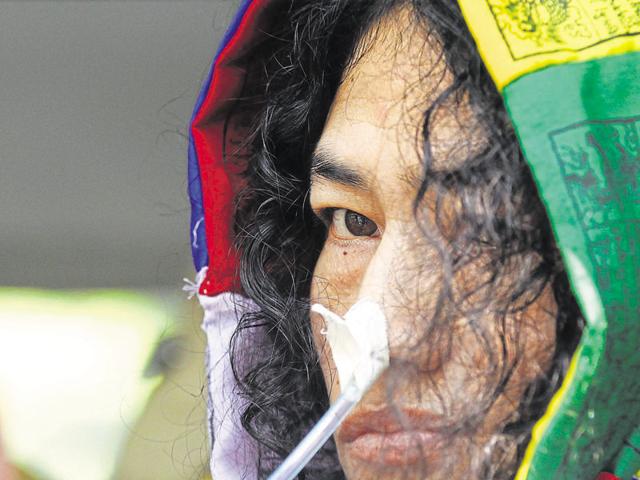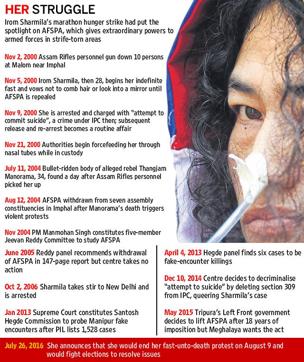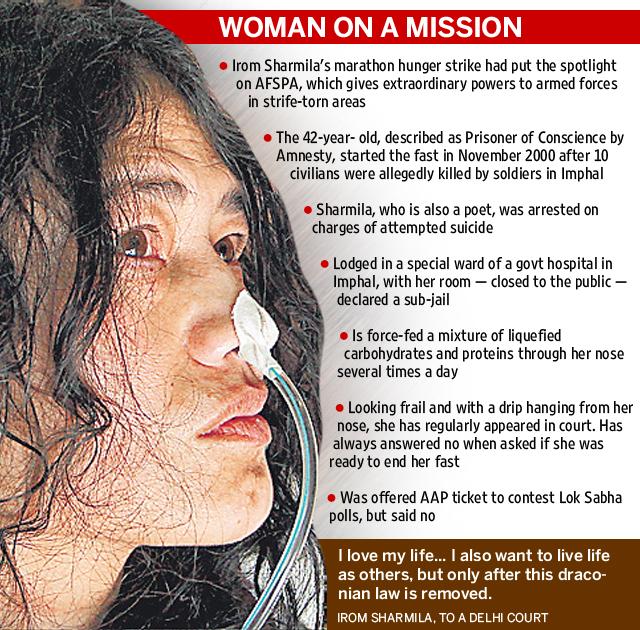Manipuri activist Irom Sharmila to end fast after 16 years, fight elections
More than 16 years after she began her fast-unto-death protest against the controversial Armed Forces Specials Powers Act (Afspa), activist Irom Chamu Sharmila, on Tuesday, announced she would end it on August 9.
Human rights activist Irom Chanu Sharmila on Tuesday said she was ending her fast-unto-death protest against the controversial Armed Forces Specials Powers Act (Afspa), and would instead contest elections in Manipur.

Speaking to media outside the Imphal court, the 43-year-old announced her decision almost 16 years after she began her fast.
“I will break my fast as the government has failed to give any positive response... I will fight elections to resolve the issues,” she told ANI.
Known as the ‘Iron Lady of Manipur’, Sharmila began her non-violent protest in November 2000 after 10 people were killed by troops of the Assam Rifles near a bus stop at Malom, in the outskirt of Imphal.
She was arrested under Section 309 of the Indian Penal Code on charges of attempt to commit suicide, and held at a prison hospital where the government force-fed her through the nose for years.
Read| Manipur’s lost sons: Why Irom’s fight against AFSPA is in 15th year
Read | Sharmila is not allowed to die because her Santhara is political
Read | Here are 10 things to know about controversial legislation Afspa

The Afspa 1958 covers large parts of northeastern India and Kashmir, and gives security forces sweeping powers to search and shoot on sight. Seen by critics as a cover for human rights abuses, Sharmila was one of the strongest voices opposing the act.
Earlier this month, the Supreme Court strongly rebuked the army, saying it cannot use “excessive or retaliatory force” even in troubled areas. With regards to Manipur, it said the situation was never a “war-like” threat to national security that warranted the act.
The apex court further directed a thorough probe into the alleged fake encounter killings there.
In March 2016, the Delhi court acquitted the Manipuri in a 2006 case filed against her for ‘attempt to suicide’ after she held a fast-unto-death protest at Jantar Mantar.
When she appeared in court for the matter in 2013, Sharmila expressed her desire “to live a normal life” and asked why the government was “scared of giving her fundamental rights of a human being”.
“I am just a simple woman who wants to follow the non-violent principle of Gandhiji, the father of the nation. Just treat us also like him and do not discriminate. As a leadership, don’t be biased against a human being,” she said at the time.






